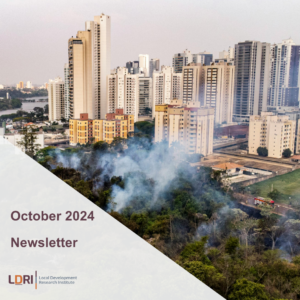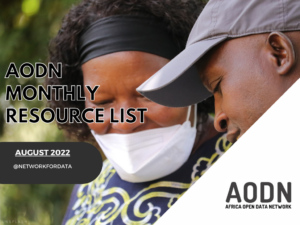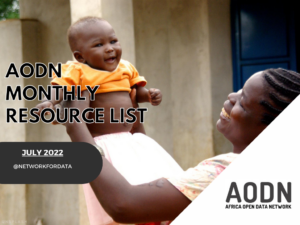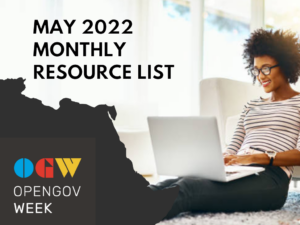![]()
JUNE 2022 MONTHLY RESOURCE LIST
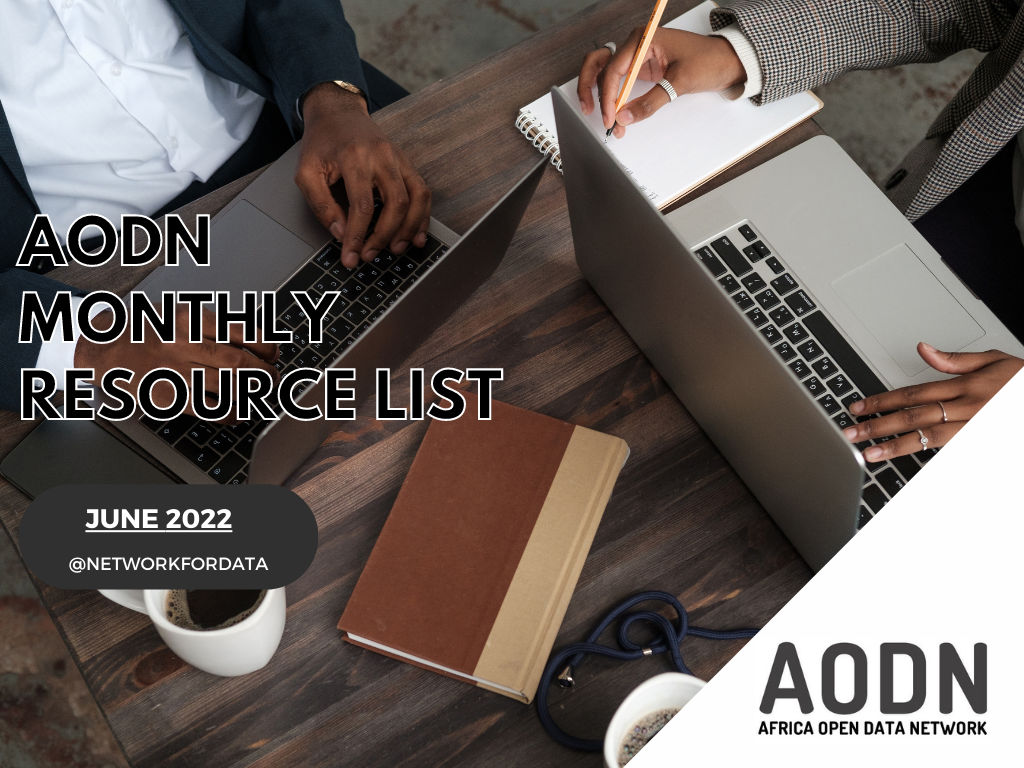
Monthly Resource List
The monthly resource list for June 2022 puts together content including a reading list, avenues for capacity building, and events from different stakeholders across the globe on the use of open data for better service delivery in sectors such as Governance, Gender, Agriculture, Education, and Health.
- What We Are Reading This Month
Why a patient-centric approach is necessary for data governance in the healthcare sector
How health data is governed is a core component of the digital transformation of the healthcare sector and the expansion of “digital health”¹. Data governance plays not only a key role in a patient’s health outcome, but also allows for data to be incorporated into various research and innovation processes.Read More
Citizen-Generated Data for SDG Reporting in Kenya
Citizen-generated data can complement official data sources and close data gaps. In Kenya, the Kenya National Bureau of Statistics (KNBS) is building its capacity to use these alternative data sources. This report describes how partners from KNBS, the SDGs Kenya Forum, PARIS21 and Partners for Review worked together on a project to build and strengthen capacities within the national statistical system (NSS) and actors of the extended data ecosystem in Kenya to use new and alternative data sources to improve national reporting on the Sustainable Development Goals. Download The Report
All eyes on the data: How Nigeria’s Dataphyte monitored $120 million worth of government projects using an open contracting approach
Public contracting in Nigeria has been plagued by corruption. This by itself is troubling, but the greater impact is how it denies citizens access to essential infrastructure and services such as schools, healthcare, water, and electricity. The lack of usable data on contracts awarded to implement projects has made it difficult to monitor and evaluate the contracting process and ensure the timely delivery of the projects. Read More
Gender-Just COVID Recovery: From Intention to Outcome
The COVID-19 pandemic has exacerbated gender inequality and reversed progress towards gender equality. Addressing this requires purposeful action, based on evidence of the diverse circumstances facing women, men, and non-binary and gender-diverse individuals. However, quantitative data of this kind is woefully inadequate, often partial, and measured with tools that embed and perpetuate patriarchal assumptions about how poverty is experienced. To make a gender-just recovery a reality, the G7 and countries with feminist foreign policies must lead the pivot to a new gap and look beyond the household level; enable multi-dimensional capture of individuals’ circumstances, and; intersectional analysis. Read more
Sustainable Development Report 2022
In the context of multiple crisis the report analyzes and outlines how the SDGS can be used as a roadmap for more sustainable societies by 2030 and beyond. In particular, this year’s edition underlines the importance of international financing mechanisms for addressing the lack of fiscal space in poorer countries and promoting sustainable investments in physical and human infrastructure. Download the report
-
Training/Tools
Data Collection and Analysis Simplified
Implementing Open and Sustainable Public Procurement: a new toolkit

